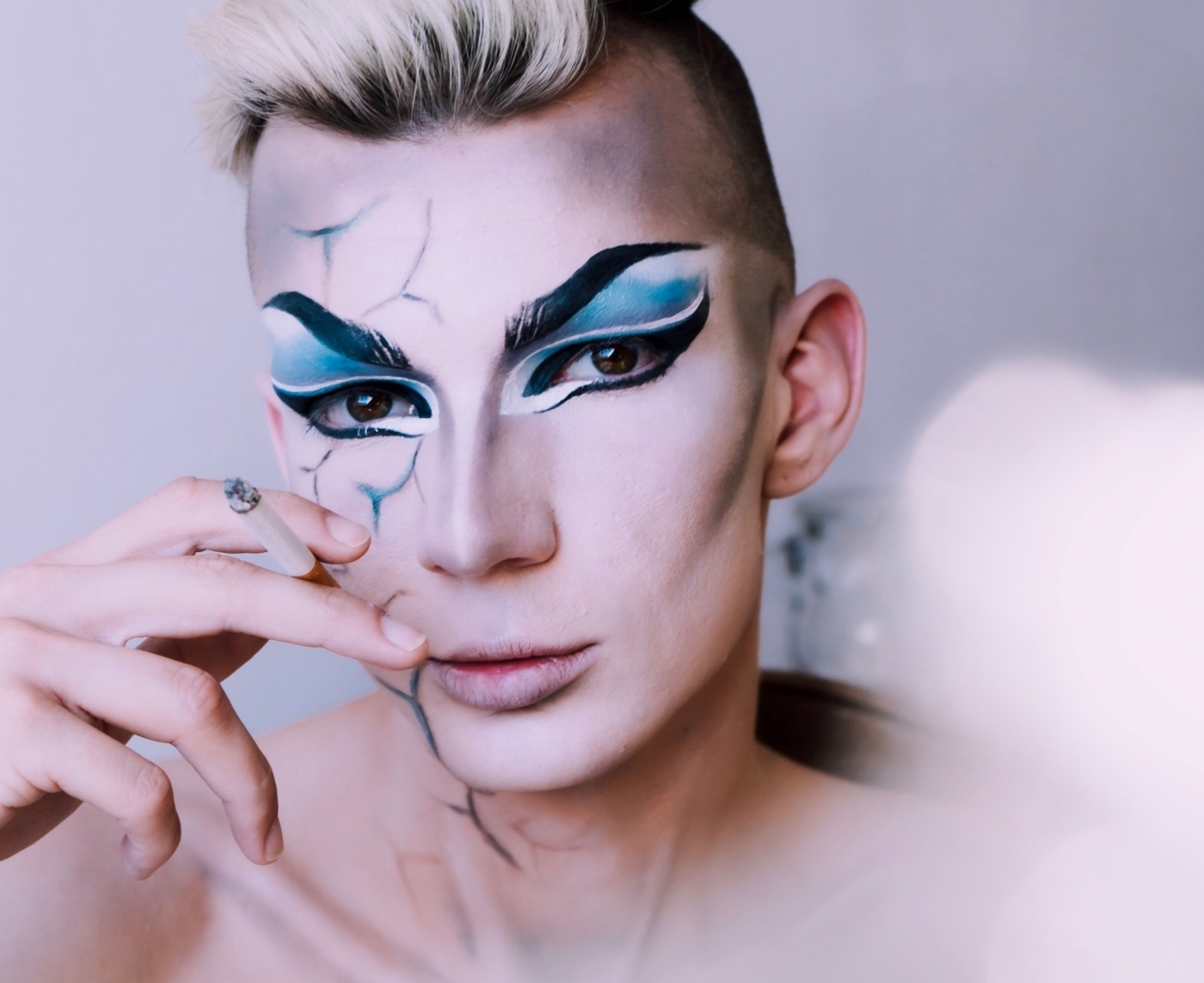Men, makeup and toxic masculinity
The way things are moving, it seems that Ozzy Osbourne and Captain Jack Sparrow were forward thinkers. Both, of course, are known for wearing eyeliner as a statement of edginess, taking a symbol of femininity and reinventing it to push boundaries.
While guyliner may once have been synonymous with rock stars and pirates, the idea of men wearing makeup is going mainstream. According to Euromonitor, the male grooming industry will be worth over £49 million this year and has quadrupled in size over the last five years. Chanel has brought out its own range, John Lewis has a men’s makeup counter, make up YouTuber James Charles is the face of Covergirl and even Emmanuel Macron and Donald Trump are known to wear makeup.
What does this say, then, about our culture? An immediate answer, on the one hand, points to a growing, modern phenomenon, namely the breakdown of gender roles – the blurring of traditional stereotypes of masculinity and femininity.
We’re realising that makes a man a man and a woman a woman is arbitrary
It goes without saying that younger generations have encouraged change in how we think about gender and what defines it, especially as non binary and gender non conforming identities have entered the public consciousness. We’re realising that what makes a man a man and a woman a woman is arbitrary, limiting and doesn’t serve us, especially if we find that the traditional markers of how gender should be performed don’t appeal to us. Men wearing makeup is therefore hugely progressive in this sense. It represents a rejection of the need men in the past may have felt to fit into the narrow box of masculinity. It provides a mode of self-expression that they have been denied by the installation of a “boys don’t cry” mentality.
For men to be celebrated and not shamed or laughed at for wearing makeup, however, is an ideal state we might not have reached yet. It is noteworthy that men’s makeup brands don’t even have the word “makeup” on the packaging and have masculine sounding names such as Boy de Chanel and War Paint. According to Alex Dalley, founder of MMUK, men want products that seem “undetectable”. In the early days of the business, MMUK would receive orders from customers using fake names and requesting parcels with no reference to makeup on them whatsoever.
From this, it is clear that toxic masculinity hasn’t released its grip on society just yet. The association of makeup with femininity is a source of shame for some men, as if it threatens their masculinity. It stems from their own internalised sexism, which is why there is specific makeup for men rather than making all makeup gender neutral. After all, in the words of Madonna, “for a boy to look like a girl is degrading, because you think being a girl is degrading.”
The future of makeup is going to be a gender neutral one, and it is worth not just accepting that, but embracing it
Men’s skincare ranges have been commonplace for a while now, and men might be becoming more conscious of their image, fuelled by Instagram’s domination over culture and the need to be photo ready at all times.
It is also true, however, that male insecurity is a growing and under-discussed issue. A recent study reported on by the likes of TIME and Cosmopolitan found that they are roughly as likely to be unhappy with how they look as women. Some might view this, as Mahdawi certainly does, as capitalism swooping in to fix a problem and profiting off of it. On the other hand, if it can help men as it has been known to help women, it is better than having fewer solutions. Danny Gray, founder of War Paint, credits it with helping his body dysmorphic disorder and there are certainly worse things you can do to help yourself in that regard.
We might have a little way to go before you stand next to a man at a makeup counter in the full knowledge that he is looking for something for himself and not his girlfriend. Regardless, the future of makeup is going to be a gender neutral one, and it is worth not just accepting that, but embracing it.

Comments